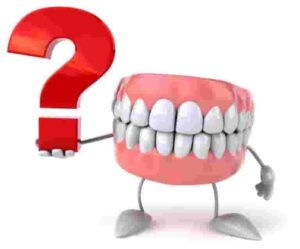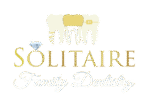Frequently asked Dental questions

What type of tooth brush and tooth paste should I use?
Pick tooth brushes with softer bristles. Hard and medium hard bristles might cause damage to the teeth and gums. Bristles of different height can clean the teeth better than the ones with the same height. Powered brushes can be used as an alternative when there is trouble using hand range of motion required with manual toothbrushes. Speed and pattern setting can be done in a powered toothbrush to an individual comfort level. Soft bristled tooth brush along with a fluoridated tooth paste with ADA seal of approval should be used for 2 minutes, twice daily, once in the morning and once in the night. Toothpastes containing fluoride will further protect and strengthen the teeth against cavities. Non fluoridated toothpastes are also available If there is any individual preference to them.
How often do I need to change my tooth brush?
Manual soft bristled tooth brushes need to be changed once every 3-4 months or when the bristles start fraying. This indicates the need for a new tooth brush or sometimes further analysis is needed to check If the too much brushing pressure is applied while brushing.
How often should I visit the Dentist?
According to ADA (American Dental Association), It is advisable to visit a Dentist once in 6 months. This will help the Dentist to identify any problems early on. Certain individuals who are more prone to having dental problems or active caries lesions, benefit the most with frequent checkups. During the checkups, a thorough oral visual examination is performed. X-rays are taken wherever needed. Dentist will look for any early signs of decay, gum disease, teeth wear and so on. Teeth cleaning is done where in plaque and tartar build up is cleared. Fluoride treatments may be recommended by the Dentist to strengthen the teeth and help prevent any further cavities. Dentist will educate the patient on oral health care.
How often should I use a mouthwash?
After brushing and flossing, it is recommended to use a mouthwash twice per day. Thoroughly swish the mouthwash all around and spit it out. Do not rinse mouth with water after as it will dilute the active ingredients of the wash. The antiseptic properties of the mouthwash will kill the bad bacteria and keeps the breath fresh. It also cleans the hard to reach areas with the tooth brush. Mouth mouthwashes contain fluoride although the concentration is less than the toothpastes.
What causes cavities?
Bacteria in the mouth act on the sticky, sugary, acidic starchy foods and drinks and convert the carbohydrates to acids. These acids along with the sticky food and bacteria for the dental plaque. The acids in the dental plaque when not frequently cleaned, cause small holes in the teeth enamel called cavities. A healthy diet with proper brushing and flossing along with timely dental visits keeps the mouth cavity free.
Does teeth cleaning create teeth gaps?
No. Teeth cleaning cleans the teeth of plaque and tartar. Tartar is hardened deposits around and between the teeth. They fill in the gaps present between the teeth due to bone loss. Teeth cleaning removes these deposits, thereby revealing the gaps originally present. It may appear therefore after teeth cleaning, that the gaps have appeared or increased, when merely cleaning removes just the tartar closing the gaps giving a false perception of strong teeth.
Does teeth cleaning remove teeth enamel?
No. Dental cleaning merely removes the plaque and the tartar while maintaining the enamel integrity. The Enamel is the strongest part of the tooth and in the body. Teeth cleaning cannot scratch or chip off the healthy tooth enamel. It is therefore advised to remove plaque and tartar before they become too hard, as more gentle scaling can be done.
Can tooth removal affect my eyesight?
This is a myth which has no scientific evidence. Eye symptoms can be related to stress and fatigue of the dental treatment, but not directly related to the extraction of teeth.
Conclusion
At Solitaire Family Dentistry, we provide solutions to all your queries, the first step in maintaining good oral health is visiting a Dentist. Schedule your dental visit today with us and keep all your dental fears away.


